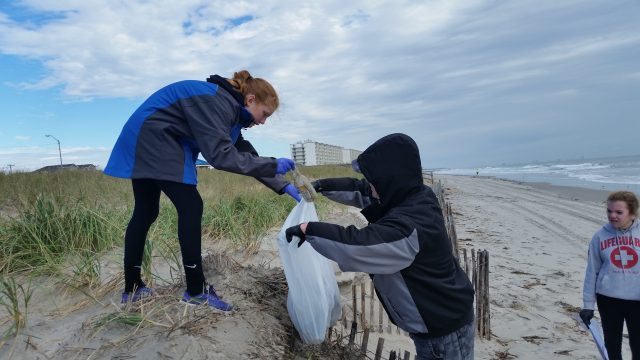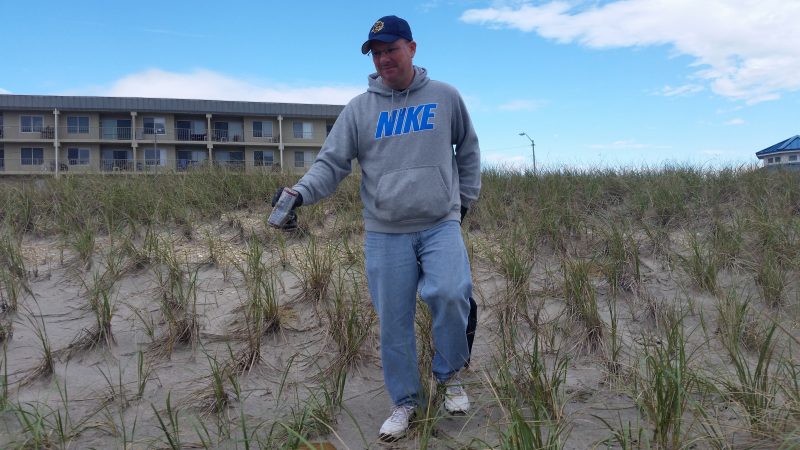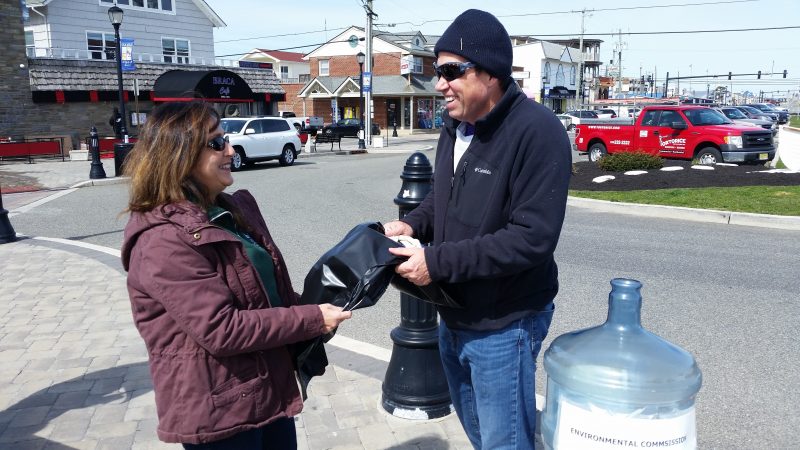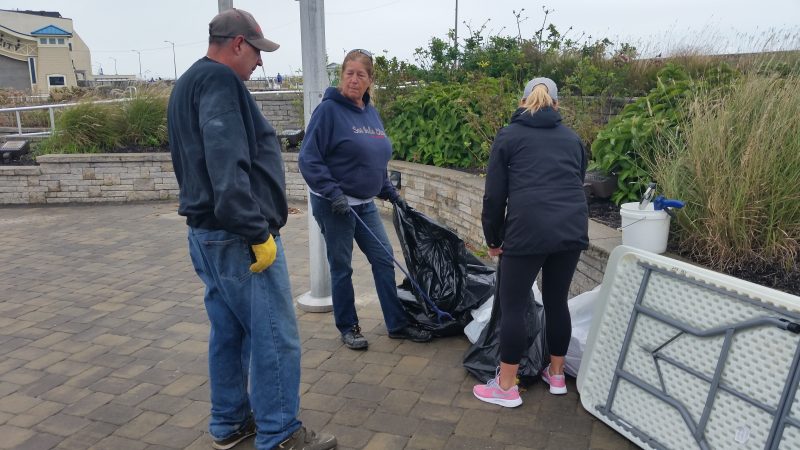
By Donald Wittkowski
Hey, did anyone lose their lacrosse stick? What about a computer monitor? Or some Christmas lights, perhaps?
Those were some of the most unusual items plucked out of the sand during Sea Isle City’s communitywide beach cleanup on Oct. 13.
A plastic toy monkey, a sprinkler head, a Jet Ski flotation device, shotgun shells and building materials were also among the more bizarre types of litter removed from the beaches, according to a newly released report by the Sea Isle City Environmental Commission. http://www.sea-isle-city.nj.us/LinkClick.aspx?fileticket=ohzbTWk1Vt8%3d&tabid=2389
Aside from those oddities, there was plenty of trash that is typically picked up from the beaches and dunes during the annual autumn cleanup, including plastic, paper and glass.
Altogether, 6,580 pieces of trash and debris were collected by the more than 180 volunteers who participated in Sea Isle’s beach sweep, the report said.
Discarded plastic items were by far the most common type of junk found on the beaches – 5,197 pieces in all, or 79 percent of the entire load of trash that was removed.
They included plastic bags, bottles, food and candy wrappers, caps and lids and straws. Plastic cigarette filters represented the single-biggest source of trash on the beaches. Volunteers picked up a total of 1,124 cigarette butts during the cleanup, the report said.
The Environmental Commission noted that plastics can be harmful to the beaches and also pose a threat to marine life. It is well known that turtles, whales and other types of sea creatures can die if they swallow plastic and their digestive systems become blocked.
“Plastic seems to be the item of most concern, so that’s why we highlighted it in the report,” said Maria Andrews, the Environmental Commission member who authored the report.

New Jersey is moving forward with a ban on plastic grocery store bags, Styrofoam food containers and plastic straws, the report said. At the same time, the Environmental Commission is urging Sea Isle’s government and business community to join the growing crackdown on plastic by pursuing local initiatives.
“To prevent and minimize any harmful effects to the beach environment and marine life, Sea Isle City officials and vendors could consider eco-friendly alternatives to replace the use of plastic store bags, Styrofoam food containers and straws,” the report said.
“This initiative can be part of a collaboration by city officials, city vendors and other city stake holders. An awareness campaign is planned to be launched by the Sea Isle City Environmental Commission to promote strategies to reduce the single use of plastics,” the report added.
In an interview Saturday, Andrews suggested that city officials and local business leaders should form a task force or a working group to study the plastics problems and come up with solutions.
“We’re trying to minimize the single use of plastics,” said Andrews, who is the associate director of undergraduate programs for the Department of Earth and Environmental Science at the University of Pennsylvania.
As an example, Andrews suggested that local businesses could offer their customers reusable bottles or shopping bags to reduce the amount of plastics.

The Environmental Commission’s report also raises concerns about discarded cigarette butts, including the toxic chemicals they can spread in the environment. It pointed out that “cigarette filters remain a problematic item along the beach and on the dunes.”
“Cigarette filters or butts are the most common form of litter found in our Sea Isle beaches,” the report said. “Cigarette butts are nonbiodegradable toxic plastics. Numerous scientific studies have found toxic heavy metals, such as arsenic, and toxic organic compounds, such as nicotine and polycyclic aromatic hydrocarbons, released to the environment by cigarette butts litter. These chemicals can also leach out of the cigarette butt and pose acute toxic effects to aquatic organisms.”
In July, Gov. Phil Murphy signed legislation that bans smoking on New Jersey’s beaches and in state-owned parks beginning in 2019. The legislation gives towns the discretion of setting aside 15 percent of their beaches as a smoking area.
“This law will facilitate a decrease in the number of cigarette filters littered on the beach, dunes and their proximity and it will also provide a decrease in the toxic effects triggered by cigarette butts,” the Sea Isle City Environmental Commission concluded in its report.
Clean Ocean Action, an environmental group that organizes beach cleanups along the Jersey Shore, reported finding 29,000 cigarette butts 1,155 lighters and 1,870 cigarette packs in 2017.
Twice a year, in the fall and spring, Sea Isle holds the beach cleanup in partnership with Clean Ocean Action. Sea Isle’s cleanup volunteers carefully catalog the types of trash and debris that are found. The information is sent to Clean Ocean Action as part of a statewide database from beach sweeps at shore towns across New Jersey.
Keeping the dunes, beaches and ocean as clean as possible is especially important in the summer season, when throngs of tourists arrive on vacation. Sea Isle wants to make a good impression on the visitors by having pristine beaches, city officials say.








